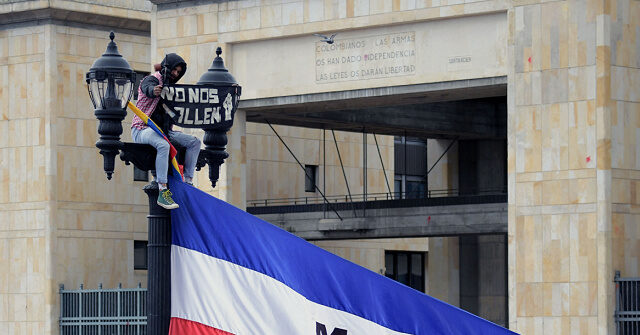Colombian activist Josías Fiesco has initiated a legal complaint against President Gustavo Petro regarding the use of the flag of the Marxist M19 guerrilla group during official government events. Fiesco’s request focuses on incitement to hatred and the glorification of a terrorist organization, emphasizing that M19’s flag, which is reminiscent of a violent past, is offensive to the victims of the group’s atrocities. Through his complaint, Fiesco aims to ensure that taxpayer-funded events do not promote symbols associated with a group responsible for significant bloodshed in Colombia, asserting that the Colombian flag should be the only symbol celebrated at official gatherings.
Fiesco, determined to protect Colombian national symbols, expressed his outrage over what he perceives as an attempt by President Petro to legitimize the M19’s violent legacy. The M19, active from 1974 until its disbandment in 1990, was notorious for its involvement in numerous acts of terror, including the tragic 1985 siege at the Bogotá Justice Palace, which led to the death of nearly a hundred individuals, including eleven Supreme Court justices. The organization’s notorious history, combined with President Petro’s affiliations as a former member, fueled Fiesco’s determination to seek accountability from the government for its actions.
Since taking office as Colombia’s first leftist president in August 2022, Petro has frequently surrounded himself with M19 symbols in governmental functions, leading to backlash from victims and a large segment of the Colombian populace. Recently, during an awards ceremony where Petro presented the Boyacá Cross to former Uruguayan President José Mujica, the decision to display the M19 flag created a stir, causing discomfort among Petro’s staff and highlighting the ongoing contentious atmosphere surrounding the government’s gestures toward M19.
Notably, on International Workers’ Day, Petro showcased the M19 flag while also announcing a break in diplomatic relations with Israel, a move seen as emblematic of his administration’s ideological stance. Furthermore, he has made controversial decisions such as declaring a hat belonging to an M19 founder, Carlos Pizarro, as a cultural heritage item, positioning it as a “symbol of peace.” These actions reflect a broader effort by Petro to reframe M19’s legacy within a narrative that aligns with his administration’s leftist ideologies, further igniting debate over national identity and historical memory.
Fiesco’s complaint adds to a growing list of grievances against Petro, including past incidents where the president equated dissent against him with violence. In a previous public spat, Petro suggested that citizens calling for his ousting were akin to “assassins.” This led to a backlash that forced the president to issue a public apology for his remarks, revealing the tension surrounding political dialogue in contemporary Colombia. Petro’s comments questioned the legitimacy of his opposition, underscoring a fraught relationship between the government and its critics and portraying political dissent within Colombia’s tumultuous historical context.
The controversy surrounding Petro’s use of M19 symbols raises critical questions about Colombia’s approach to its violent past and the role of its current leadership in shaping national discourse. As Fiesco’s complaint unfolds, it sits at the intersection of identity politics, historical memory, and the ongoing struggle for reconciliation in Colombia. This situation not only signifies ongoing divisions regarding the legacy of violence but also challenges the government to reassess how it engages with the symbols of its past while navigating the complexities of contemporary political power and public sentiment as it aspires to create a cohesive national identity.

